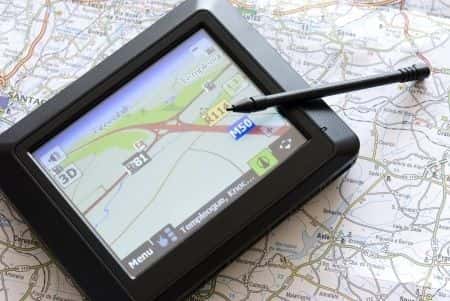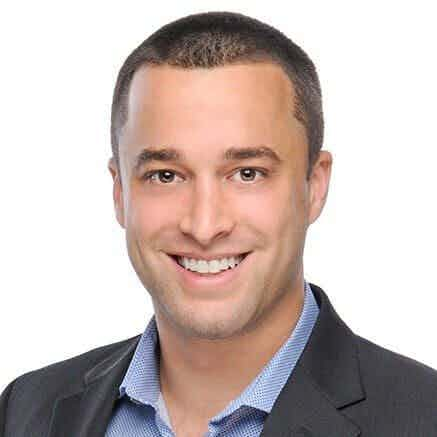Background
On September 9, 2008, Evert Thompson and Sharron Graham robbed a Bank of America located in Iselin, New Jersey, with a Colt .357 revolver. After fleeing the bank in a stolen black BMW, the two men abandoned the car and entered into a tan Chevrolet Astro minivan. Unbeknownst to the robbers, one of the stolen sacks of money contained a GPS tracking device. The GPS device permitted police officers to monitor the stolen money’s latitude, longitude, direction, and speed.
Relying upon transmissions from the GPS device, three detectives from the Woodbridge Township Police Department drove in an unmarked car to an intersection where they expected to intercept the black BMW. Rather than seeing a black BMW, the detectives observed a tan Astro minivan traveling the same coordinates as those provided by the GPS system. Consequently, the detectives proceeded to follow the minivan. The minivan, realizing that it was being followed, accelerated to high speeds, triggering the detectives in the unmarked car to activate its emergency lights. A high speed chase ensued and concluded with a collision between the minivan and another vehicle.
Looking for a GPS Expert Witness? Click here to find the perfect expert now.
Following the collision, Thompson was arrested after a foot-chase and Graham was arrested in the minivan. Inside the minivan, police officers recovered a white plastic bag containing $31,007.98 in cash – the exact amount stolen from the bank. Also, police officers found attire that was worn at the robbery, a loaded Colt .357, a Radio Shack police scanner, the car key to the BMW, and the GPS tracking device.
After Graham pleaded guilty to the armed bank robbery, a superseding indictment was returned against Thompson, charging him with armed bank robbery and using and/or carrying a firearm during a crime of violence. Prior to trial, Thompson moved to suppress evidence gathered as a result of his arrest and search of the minivan. The motion was denied without a hearing. After a three-day jury trial, Thompson was found guilty on both counts.
Expert Witness
Edward Uehlinger, a thirteen year Senior Account Executive with the manufacturer of the GPS involved in this case, 3SI Security Systems, was called to testify as a lay witness. He testified that he was trained in, experienced in, and had verified the functioning of GPS devices. Uehlinger was responsible for customer service and sales for all of his clients, primarily banks and credit unions, in New York, New Jersey, and New England. His company sold the GPS device to the Bank of America branch office that Thompson robbed.
Mr. Uehlinger explained that an Electronic Satellite Pursuit (“ESP”) device automatically activates when it is lifted from the bank teller’s drawer, thus triggering GPS tracking. A GPS system, when activated, automatically relays the latitude, longitude, speed, and directional coordinates to the appropriate local police departments. This information was recorded on a spreadsheet titled, “ESP Tracker Data,” and was admitted at trial as Government Exhibit 16. Mr. Uehlinger further testified that when the device is activated a dot is created on a map to depict the device’s movements. Each dot has a latitude, longitude, direction, speed, and time stamp. This graphical depiction of the ESP tracking data was admitted as Government Exhibit 18. In short, Mr. Uehlinger explained how the responding police officers were able to track and apprehend Thompson using the GPS system, and that the data generated by the device was recorded on Government Exhibits 16 and 18.
Daubert Challenge
Thompson claimed that the District Court erred by permitting a lay witness, Mr. Uehlinger, to deliver opinion testimony concerning the GPS tracking device, which led to his apprehension. In particular, he challenged the admission of two exhibits that Mr. Uehlinger authenticated: Government Exhibit 16, the spreadsheet listing the tracking information for the GPS device during the incident in question; and Government Exhibit 18, the graphical depiction of the data produced by the GPS device during the incident. Thompson disputed the admissibility of the exhibits and related testimony because Mr. Uehlinger had no scientific background concerning the functionality of the GPS device.
Conclusion
This Court in this case found that the District Court did not err in permitting Uehlinger to testify as a lay witness. According to Rule 701, lay and expert testimony are distinguishable in that “lay testimony results from a process of reasoning familiar in everyday life, while expert testimony results from a process of reasoning which can be mastered only by specialists in the field.” Uehlinger’s testimony pertaining to the GPS data involved lay witness testimony based on particularized knowledge by virtue of his experience, and as such the Court found his testimony admissible even if the subject matter was specialized or technical because it was based upon Uehlinger’s personal knowledge rather than on specialized knowledge within the scope of Rule 702.
In this regard, Mr. Uehlinger testified that he does demonstrations for prospective clients by conducting live demonstrations of the reliability of the GPS devices, thus affording him a basis for attesting to the reliability of the system. Moreover, Uehlinger’s testimony was rationally based on the perception of the witness, as mandated by Rule 701(a). The expression of opinions or inferences by a lay witness is permitted because of the qualification in Rule 701(a) that the factual predicate of the testimony be within the witness’s perception. Because the opinions and inferences expressed by Uehlinger were based upon his perceptions, the Court concluded that the District Court did not abuse its discretion in allowing Uehlinger to testify concerning the operation of the GPS device.
About the author
Jared Firestone, J.D.
Jared Firestone, J.D., is a multi-disciplinary attorney with expertise in a range of legal areas. He founded and operated Firestone Law Firm PA in Hollywood, Florida, and worked as an Associate Attorney at Gustman Law P.C. in New York. His practice areas include Personal Injury, Criminal Defense, Medical Malpractice, Trusts & Wills, Civil and Commercial Litigation, Family Law, Real Estate, and Immigration. Additionally, he has experience in real estate, focusing on residential property in the Miami/Fort Lauderdale areas. Firestone also served as a pro bono Mediator at the Benjamin N. Cardozo School of Law Divorce Mediation Clinic. He holds a J.D. from Cardozo School of Law, where he honed skills in E-Discovery, Divorce Mediation, and Legal Writing, and a Bachelor’s degree in Philosophy from Tulane University.



